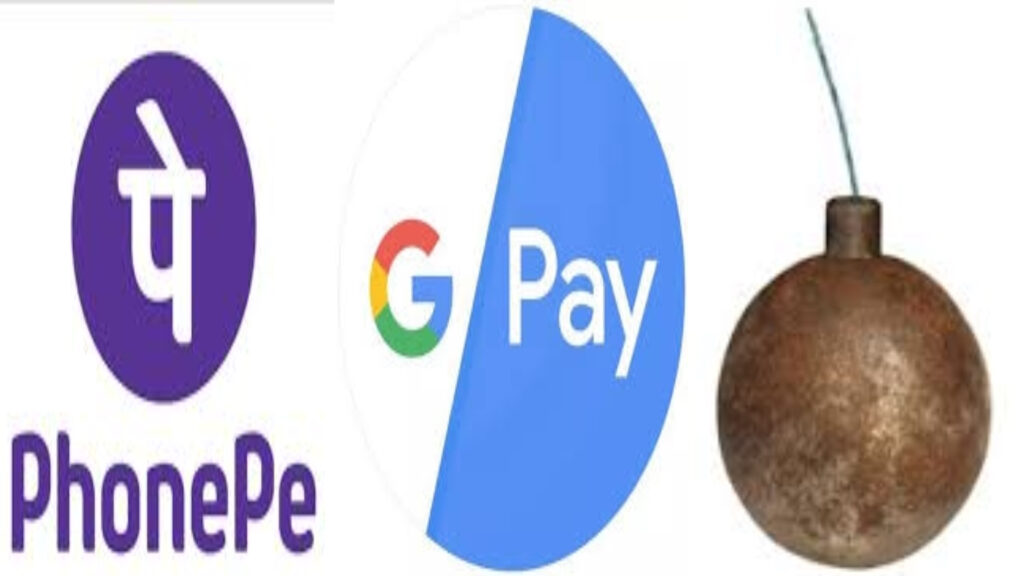In a significant statement made in New Delhi on February 9th, Nationalist Congress Party Member of Parliament, Supriya Sule, raised concerns over the operations of widely used digital payment platforms, specifically naming Google Pay and Phone Pe. During a detailed discussion focused on ‘The White Paper on Indian Economy’ in the Lok Sabha, Sule expressed her apprehensions, describing these platforms as “two ticking time bombs.”Her remarks highlighted the critical need to tackle possible dangers tied to these payment methods, especially regarding money laundering.
Supriya Sule’s remarks came against the backdrop of recent unsettling developments concerning the Paytm Payments Bank Ltd (PPBL). She highlighted these incidents as “very alarming,” suggesting that the events surrounding PPBL bore the hallmarks of money laundering activities. This comparison served to accentuate the gravity of her concerns regarding the operational integrity and security of digital payment apps like Google Pay and Phone Pe.
The MP’s call to action was clear and forthright. She questioned the measures being undertaken by the government to safeguard against the misuse of these platforms for illicit financial activities, including money laundering. The essence of her inquiry was not just about understanding the current state of affairs but also about proactively seeking solutions to enhance the regulatory framework governing digital payment systems in India.
The digital payment ecosystem in India has experienced exponential growth over the past few years, driven by the government’s push towards a digital economy and the increasing comfort of the Indian populace with technology-driven transactions. Apps like Google Pay and Phone Pe have become household names, offering convenience and a broad spectrum of services to millions of users. However, this rapid growth also brings to the fore critical questions about user security, data privacy, and the potential for financial crimes, which platforms must address to maintain user trust and ensure a safe digital financial environment.
The issue of money laundering is particularly pertinent in the digital age, where the fluidity of electronic transactions can sometimes obscure the origins and destinations of illicit funds. In light of these concerns, Sule’s comments in the Lok Sabha can be seen as a clarion call for a more robust regulatory and oversight mechanism. This would not only aim to prevent the misuse of digital payment platforms but also instill a greater sense of confidence among users regarding the safety and integrity of their financial transactions.
The government’s response to these concerns is crucial in shaping the future trajectory of digital payments in India. It involves not just tightening existing regulations but also adopting innovative approaches to monitor and counter potential threats. This includes leveraging technology to enhance transparency and accountability within the digital financial space.
Furthermore, it is essential for stakeholders, including payment service providers, regulatory bodies, and the government, to collaborate closely. This collective effort can lead to the development of comprehensive strategies that address the multifaceted challenges posed by the digital financial landscape. Education and awareness campaigns targeting users about the safe use of digital payment systems can also play a significant role in mitigating risks.
In conclusion, Supriya Sule’s remarks in the Lok Sabha have highlighted critical issues concerning the security and integrity of digital payment platforms in India. As digital transactions continue to weave deeper into the fabric of the Indian economy, addressing these concerns becomes paramount. The path forward requires a balanced approach that promotes innovation and convenience while ensuring the highest standards of security and regulatory compliance. The ultimate goal is to foster a digital payment ecosystem that is not only robust and efficient but also secure and trustworthy for all users.
The dialogue initiated by Supriya Sule in the Lok Sabha serves as a pivotal moment for the digital payment sector in India, prompting a deeper examination of its vulnerabilities and strengths. The analogy of “two ticking time bombs” regarding Google Pay and Phone Pe is not just a critique but a wake-up call for preemptive action to safeguard the digital financial infrastructure. As India strides towards a more digitized economy, the emphasis must be on constructing a resilient system that not only fuels growth and innovation but also prioritizes the protection of its users against financial malpractices. This necessitates a multi-layered strategy, integrating advanced technological safeguards, stringent regulatory norms, and active participation from all stakeholders, including the end-users. The development of such a holistic ecosystem will be instrumental in turning these potential vulnerabilities into opportunities for strengthening the trust and reliability of digital payment platforms in India.

